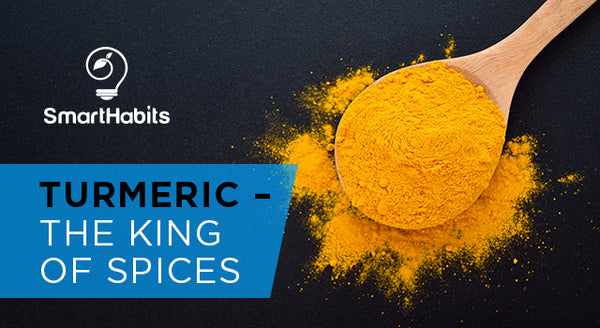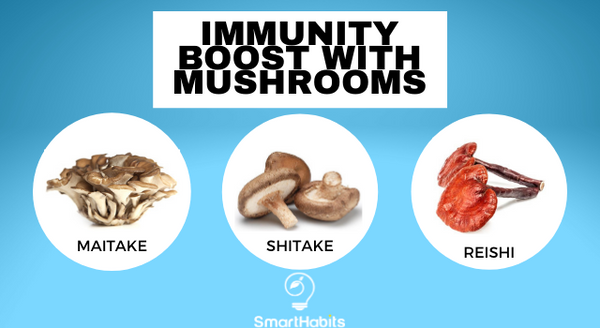Frequent colds and flus are not just an annoyance, they disrupt work schedules, interfere with social plans, and can impact quality of life. Viruses and bacteria are all around us, but that doesn’t mean that every time you ride on an airplane or play with kids, you should catch a cold. When you start to notice the early symptoms of a cold or flu, you may reach for the orange juice - vitamin C, right? - which unfortunately usually doesn’t reduce the severity or duration of a cold or flu. Luckily there are more effective ways of supporting the immune system which can help resolve a current cold or flu, as well as prevent future sick days.
Our Immune System
We are equipped with an immune system which is responsible for identifying bacteria and viruses that may be harmful and then eliminating them from the body. This is carried out by a variety of different immune cells such as natural killer cells (NK), macrophages, lymphocytes, cytokines, and immunoglobulins. Each of the immune cells has a different role in immunity. Some cells like NK cells and macrophages are responsible for engulfing and removing bacteria, while lymphocytes recognize invaders, produce antibodies, and destroy cells that could cause damage.
Exposure to bacteria and viruses typically results in trained immunity, which helps the immune system remember past infections to prevent future infection, or re-infections with the same bacteria or virus (3). Trained immunity develops as we age, and can be less matured in children - this is why kids tend to get sick so often. Our immune system is also vulnerable to high levels of stress, poor nutrition, and lack of sleep.
When seeking to strengthen your immune system, it is important to first address the fundamentals like a healthy diet and quality sleep. There are a number of vitamins and herbs which can aid immune function. One of the most potent and effective choices is medicinal mushrooms.
Medicinal Mushrooms Include:
- Gandoderma lucidum (Reishi)
- Inonotus obliquus (Chaga)
- Agaricus blazei
- Cordyceps sinensis
- Lentinula erodes (Shiitake)
- Hericium erinaceus (Lion’s Mane)
- Coriolus versicolor (Turkey Tail)
Medicinal Mushrooms
The use of mushrooms as medicines, food, and spirituality purposes dates back to before 5000 BC (4). Mushrooms are being used and continue to be studied for their immune enhancing capabilities, their effects on energy, as well as their potential use in cancer treatment.
Immunity
Medicinal mushrooms are rich in a molecule known as B-glucans which stimulate the immune system and help increase the immune cells that identify and fight infections. B-glucans are known as immunomodulators and effect a number of areas of the immune system including lymphocyte production, cytokine release, as well as NK cell and macrophage creation. B-glucans are effective at boosting your immune system to clear current infections, prevent future colds and flus, as well as support trained immunity to prevent re-infection (2,3).
A randomized, placebo-controlled study on children found that supplementing with the mushroom Reishi for 12 weeks resulted in a significant increase in lymphocytes and decreased susceptibility to infections (3). This is important as children are typically the most susceptible to infections as their immune systems are not fully developed.
Inflammation
Inflammation is implicated in almost every chronic disease we know of, and high levels on inflammation can impact immune function. Shiitake is one of the most well-studied mushrooms and has shown in research to significantly increase the number of immune cells as well as decrease body-wide inflammation (1). Chaga, Cordyceps, and Reishi are also potent anti-oxidants which help quench inflammation.
Stamina
In addition to supporting the immune system, medicinal mushrooms also improve stamina, energy, and endurance. A study in 2001 demonstrated significant increases in aerobic ability, endurance and exercise metabolism in middle-aged people after supplementing with cordyceps for 12 weeks (7).
Cancer
Extracts from shiitake have been studied in a variety of cancers, including liver, stomach, colon, and pancreatic. Researchers report an increase in survival rate, quality
of life, and a decrease in cancer re-occurrence. Laboratory research has shown reishi to be useful in cancer, specifically decreasing cancer spread, known as metastasis, and causing cancer cell death (2).
There was a recent double-blind, placebo-controlled study on patients with advanced small cell lung cancer, an aggressive form of lung cancer, who had undergone conventional treatment studied. Researchers used an extract from turkey tail to study its effect on health outcomes. They found that after 28 days of supplementing with the turkey tail extract or a placebo, the patients receiving the turkey tail extract had a significant increase in their white blood cell count (6).
Summary
- Our immune systems are less developed as children and are impacted by poor nutrition, lack of sleep and stress.
- Supporting the immune system starts with proper sleep and nutrition and can include supplements such as medical mushrooms
- There are many uses for medicinal mushrooms, and humans have been using them for thousands of years.
- Medicinal mushrooms are rich in B-glucans which stimulate the immune system to help treat and prevent infections including colds and flus.
- Medicinal mushrooms are also anti-oxidants that decrease inflammation, can help increase endurance and stamina, and there is promising research for their use in cancer.
References
1.Dai, X., Stanilka, J. M., Rowe, C. A., Esteves, E. A., Nieves Jr, C., Spaiser, S. J., ... & Percival, S. S. (2015). Consuming Lentinula edodes (Shiitake) mushrooms daily improves human immunity: A randomized dietary intervention in healthy young adults. Journal of the American College of Nutrition, 34(6), 478-487.
2.Halpern, G. M. (2010). Medicinal mushrooms. Progress in Nutrition, 12(1), 29-36.
3.Henao, S. L. D., Urrego, S. A., Cano, A. M., & Higuita, E. A. (2018). Randomized Clinical Trial for the Evaluation of Immune Modulation by Yogurt Enriched with β-Glucans from Lingzhi or Reishi Medicinal Mushroom, Ganoderma lucidum (Agaricomycetes), in Children from Medellin, Colombia. International journal of medicinal mushrooms, 20(8), 705-716.
4.Hetland, G., Johnson, E., Lyberg, T., Bernardshaw, S., Tryggestad, A. M. A., & Grinde, B. (2008). Effects of the medicinal mushroom Agaricus blazei Murill on immunity, infection and cancer. Scandinavian journal of immunology, 68(4), 363-370.
5.Panda, A. K., & Swain, K. C. (2011). Traditional uses and medicinal potential of Cordyceps sinensis of Sikkim. Journal of Ayurveda and integrative medicine, 2(1), 9.
6.TSANG, K. W., Lam, C. L., Yan, C., Mak, J. C., Ooi, G. C., Ho, J. C., ... & Lam, W. K. (2003). Coriolus versicolor polysaccharide peptide slows progression of advanced non-small cell lung cancer. Respiratory medicine, 97(6), 618-624.
7.Zhu, J. S., & Rippe, J. M. (2001). CordyMax enhances aerobic capability, endurance performance, and exercise metabolism in healthy, mid-age to elderly sedentary humans. Gerontology, 20, 297-298.
Statements made on this website have not been evaluated by the U.S. Food and Drug Administration. Information provided by this website or this company is not a substitute for direct, individual medical treatment or advice. It is the responsibility of you and your healthcare providers to make all decisions regarding your health. SmartHabits recommends that you consult with your healthcare providers regarding the diagnosis and treatment of any disease or condition. Products sold on this website are not intended to diagnose, treat, cure, or prevent any disease.




